Fulbright symposium 2009
The US-Australia Free Trade Agreement: the last five years, the next five years
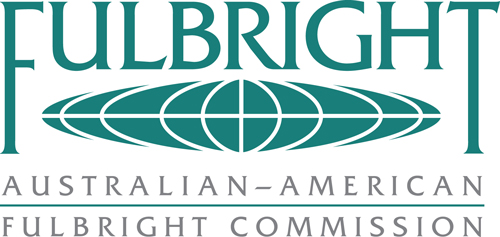 Five years after the signing of the US-Australia Free Trade Agreement and following changes of government in both countries, the trade relationship between the United States and Australia is ripe for reassessment.
Five years after the signing of the US-Australia Free Trade Agreement and following changes of government in both countries, the trade relationship between the United States and Australia is ripe for reassessment.
How successful has the Agreement been in facilitating trade? Has it assisted in cementing the political relationship between the two countries? Where is trade policy going now given that we are in a very different economic and political climate?
The 2009 Fulbright Symposium brought together academics, policy-makers, industry leaders and commentators to review the economic and political impact of the agreement and to consider the future of the trade and political relationships between the two countries.
The Symposium seeked to provide an honest assessment of the impact of the Free Trade Agreement as a platform from which to think about how the trade relationship between Australia, the United States and third party countries in the Asia-Pacific region is likely to evolve over the next few years. There was a mixture of both plenary sessions, which dealt with broad themes and issues, and parallel sessions, which were devoted to much more specific issues and topics. Sessions included:
- The evolving political and trade relationships between Australia and the US
- The proliferation of trade agreements in the Asia-Pacific Region
- Trade in Services
- Investment and Financial Services
- Health Policy, Patents and Pharmaceuticals
- Intellectual Property Rights
- Agriculture and Quarantine
- Culture and Local Content Rules
At a time when both Australia and the United States face a challenging economic and trade environment, and against the backdrop of an apparent rise in protectionism, this Symposium provided an opportunity to reassess both where we are and where we are headed.
The 2009 Fulbright Symposium was proudly hosted by the TC Beirne School of Law at The University of Queensland and supported by the Australian-American Fulbright Commission.
For more information on the 2009 Fulbright Symposium please click here to download the report.
Information correct as at date of event.
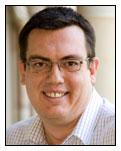 Mr David Adamson
Mr David Adamson
David Adamson started his professional working life in 1994 as the economist at the CRC for Tropical Pest Management working in a multidisciplinary environment. This generated a love for examining pest management issues and he has dabbled in the area constantly since then. David then worked as a consultant for his own company examining research programs in the agricultural sector throughout Australia. David re-joined the University of Queensland in 2004 when he took up a position for Professor John Quiggin, which then required a greater understanding of economics. He was recently involved in the failed One-Health CRC bid which would have had him working on all manner of animal, wildlife and human diseases threats currently in or posing risk to Australia.
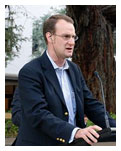 Mr Kent Anderson
Mr Kent Anderson
Kent Anderson is a comparative lawyer specialising in Japan. He is Director of the Faculty of Asian Studies in the ANU College of Asia and the Pacific and holds a joint appointment with the ANU College of Law. Kent has an eclectic background, having completed tertiary studies in Japan, US, and UK, and working first as a marketing manager with a US regional airline, then as a practicing commercial lawyer in Hawaii, and, before joining ANU, as associate professor at Hokkaido University School of Law. He has also been a visiting professor at Waseda, Nagoya, and Chuo Universities in Japan. In addition to private international law and insolvency, Kent teaches a variety of Japanese law courses including a cross-listed introductory course, an advanced seminar, a language course on reading Japanese legal materials, a moot arbitration and negotiation in Japan course, and an intensive graduate course in Kyoto. Kent’s research has focused on Japanese insolvency, conflict of laws, and recently the introduction of Japan’s new quasi-jury system (saiban-in seido).
Dr Nick Bisley
Nick Bisley is Associate Professor in International Relations and Convenor of the Politics and International Relations Program at Latrobe University. His research and teaching expertise is in the international relations of the Asia-Pacific, globalization and the diplomacy of great powers.
Nick is a member of the Council for Security and Cooperation in the Asia-Pacific and is the author of Building Asia's Security (IISS/Routledge, 2009), Rethinking Globalization (Palgrave, 2007) and The End of the Cold War and the Causes of Soviet Collapse (Palgrave, 2004).
He regularly contributes to national and international media including the The Australian Financial Review, the ABC and Al-Jazeera.
Mr Tony Battaglene
Tony Battaglene is the General Manager, Strategy and International Affairs for the Winemakers’ Federation of Australia (WFA). WFA is the national peak body for the Australian wine industry. This is a key strategic role within the organisation reporting to the Chief Executive and responsible for development and execution of strategy. The position also links between wine sector policy positions and the Government policy and regulatory environment through strong participation and input into the Policy and Government Affairs team.
There is also a particular focus on international market access issues. Tony Battaglene represents the Australia wine industry in the government to government bilateral negotiations between Australia and the European Union on wine, and leads the Australian industry delegation in a number of international fora including the World Wine Trade Group - a key multilateral organisation with the aim of liberalising the international trade in wine and the International Organisation of Wine and the Vine (OIV). There is also a key focus on protecting and developing the interests of the Australian wine industry linked to regulatory and R&D issues.
Tony graduated with a Bachelor of Science (Zoology) degree from the University of Queensland in 1984. After working in the hospitality industry until 1986, Tony undertook a fulltime Graduate Diploma in Fisheries Technology at the Australian Maritime College in 1987. Tony then worked for CSIRO's Cleveland Marine Laboratories until joining the Australian Bureau of Resource Economics (ABARE) as a research economist in 1989. Tony also graduated with a Bachelor of Economics from the University of Queensland in1989.
Following a number of years as manager of the ABARE’s Fisheries Economics Section, Tony Battaglene held a number of management positions in the (then) Department of Primary Industries and Energy with responsibility for domestic fisheries policy and trade issues. This included extensive involvement in international issues through APEC, the OECD and the FAO. Tony Battaglene has also worked with the OECD Fisheries Division in Paris and has published extensively on resource economics and wine industry issues.
Dr Milton Churche
Milton Churche has been Coordinator for Goods and Government Procurement, Free Trade Agreement (FTA) Unit, Australian Department of Foreign Affairs and Trade, since March 2005. In this position he has been lead negotiator on all goods-related issues in the recently signed ASEAN-Australia-New Zealand Free Trade Agreement (AANZFTA), with responsibility for the negotiations on such issues as tariffs, rules of origin, customs procedures, domestic standards and regulations, and sanitary and phytosanitary measures. From 2002 to 2004 he was Australia’s lead negotiator on services and investment in the FTA negotiations with Singapore (SAFTA) and then with the United States (AUSFTA).
Dr Churche has worked on trade policy with the Department since 1987. From 1987-1994 he worked on the Uruguay Round multilateral trade negotiations that led to the World Trade Organisation (WTO) Agreement on Agriculture. From 1994-2001 he worked on a range of WTO issues: trade and environment (including advice on WTO-aspects of domestic policies and multilateral environmental negotiations); trade and development; dispute settlement; non-preferential rules of origin and trade facilitation.
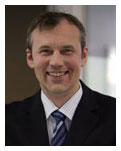 Mr Lee Davis
Mr Lee Davis
Lee Davis is an Associate Director with the Centre for International Economic’s (CIE) Sydney office. Since joining the CIE in 1998, Lee has completed numerous studies into the economic impact of trade and investment liberalisation, whether it be unilateral, bilateral or multilateral in nature.
With respect to Australia, Lee has used economic models to quantify the implications of Australia entering into trade agreements with India (in 2008), Indonesia (2008), Korea (2008) China (2006 and 2008), Japan (2005), Malaysia (2005), the United States (2001 and 2004); Thailand (2002 and 2004); and the implications for Australia, Australia and south east Asian Nations of extending Australian Free Trade Agreements (AFTA) to incorporate Australia and New Zealand (an AFTA–CER free trade area).
Lee has also investigated the economic impact of New Zealand entering into trade agreements with China (2004) and Korea (2007); and the economic impact of various APEC countries entering into a free trade agreement. For the Ugandan Government Lee assessed the economic impact of unilateral tariff liberalisation and proposed options for tariff reform.
Lee has undertaken work for the CIE in Cambodia, Indonesia, the Philippines, Thailand, South Korea, Uganda and the Solomon Islands providing economic governance, program evaluation, capacity building, policy advice and analysis. Before joining the CIE, Lee worked at the Industry (now Productivity) Commission — Australia’s principle micro economic advisory body.
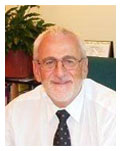 Mr Stephen Deady PSM
Mr Stephen Deady PSM
Stephen Deady took up his current position with the Minerals Council of Australia (MCA) in September 2008 following his retirement from the Department of Foreign Affairs and Trade (DFAT).
Stephen's duties at the MCA include responsibility for trade and investment policy issues.
Stephen worked for the DFAT for over thirty years in a range of trade policy positions. His final role with DFAT immediately prior to his retirement was as Director of the NSW State Office of DFAT in Sydney.
Stephen was First Assistant Secretary in the Trade Development Division of DFAT from the end of 2004 till September 2006 after completing a three year appointment as the Special Negotiator in the Office of Trade Negotiations in the Department.
In his role as Special Negotiator, he led the negotiating teams on both the Australia/United States Free Trade Agreement and the Singapore/Australia Free Trade Agreement.
Between 1995 and 1997 Stephen headed the Trade Branch of the Australian Embassy in Washington. On his return to Australia in 1998 he was in charge of the World Trade Organization (WTO) Branch with responsibility for all aspects of Australia’s day to day participation in the WTO, including accession negotiations and disputes work.
Between 1990 and 1994, he was involved in the General Agreement on Tariffs and Trade (GATT) Uruguay Round agriculture negotiations.
Stephen joined the then Department of Overseas Trade in 1976 and worked in a range of trade and economic policy positions. He headed the Trade Office of the Australian High Commission in Ottawa from 1986 to 1989.
Stephen was awarded a Public Service Medal in the Australia Day 2006 Honours List for his outstanding work in developing and promoting Australia’s trade policy, and particularly as Chief Negotiator for Australia on the Australia/United States Free Trade Agreement.
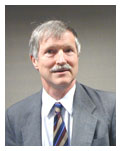 Professor I. M. ‘Mac’ Destler
Professor I. M. ‘Mac’ Destler
I. M. (Mac) Destler is Saul I. Stern Professor at the School of Public Policy, University of Maryland and Director of its program on International Security and Economic Policy. He was Acting Dean of the School in 1994-95, Director of the Center for International and Security Studies at Maryland (CISSM) from 1992 to 1999, and Director of the Ph.D. program from 2000 to 2007. He is also Visiting Fellow at the Peterson Institute for International Economics (IIE), where he analyses the political economy of trade.
Professor Destler has taught at Princeton University, the International University of Japan, and the University of Nigeria. He has consulted on economic and foreign policy organisation at the Executive Office of the President and the Department of State, and on higher education in applied economics and business for USAID/Central Asia. He has held senior research positions at IIE (1983-87), the Carnegie Endowment for International Peace (1977-83), and the Brookings Institution (1972-77). In 1998 he received the University of Maryland’s Distinguished International Service Award.
He has also chaired the Salzburg Seminar on American Politics and the Foreign Policy Process, and served on: the International Affairs Fellowship Committee, Council on Foreign Relations; the Brownlow Prize Committee, National Academy of Public Administration; the Committee on Foreign Policy Studies, Social Science Research Council; the Commission on Government Renewal, Carnegie Endowment and IIE; the Nominating Committee, American Political Science Association; and the Committee on Japan, National Research Council.
Professor Destler’s new book, In the Shadow of the Oval Office (Simon and Schuster, 2009, co-authored with Ivo H. Daalder), assesses the role of the President's national security adviser from the Kennedy through to the George W. Bush administration. His American Trade Politics, (fourth edition, 2005), won the Gladys M. Kammerer Award, American Political Science Association, for the best book on U.S. national policy. It is the Institute's all-time best-seller, with over 100,000 copies in print. Other recent works include Protecting the American Homeland: One Year On(Brookings Institution, 2003, multiple authors)and Misreading the Public: The Myth of a New Isolationism (Brookings for CISSM, 1999, co-authored with Steven Kull).
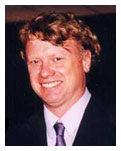 Dr Thomas Faunce
Dr Thomas Faunce
Thomas Faunce has a joint appointment at the College of Law and Medical School at the Australian National University. He is one of Australia’s foremost academic researchers into regulation of the contemporary Australian and global pharmaceutical industry. He has directed two Australian Research Council discovery grant projects in this area. The first (2005-07) on the impact of the Australian-US Free Trade Agreement (AUSFTA) on the Pharmaceutical Benefits Scheme and the Australian pharmaceutical industry. His second grant (2007-09) was on cost-effectiveness regulation of nanomedicine.
Since 2004, Dr Faunce has published two monographs with international publishers and has contracted for a third, ten book chapters and over 50 significant papers in major Australian and international refereed journals in the fields of health technology regulation and health and trade policy. He has been invited to discuss his proposal for a multilateral Treaty on Health Technology Safety and Cost-effectiveness Assessment with trade policy officials in Washington DC (US), Ottawa (Canada), Seoul (South Korea), Beijing and Shanghai (China), Wellington (New Zealand), as well as Canberra.
He has provided oral testimony before three Federal Senate inquiries: 1) on the anti-competitive practice of expiring pharmaceutical patent cluster ‘evergreening’ and the AUSFTA (this had a primary role in ‘anti-evergreening’ legislation being passed by the Federal parliament (2004)); 2) before the Flood Committee which significantly influenced its recommendations and thence the Government decision not to privatize the blood fractionation system in Australia as was recommended by the AUSFTA (2006); and 3) on AUSFTA-initiated changes bifurcating the PBS into F1 and F2 categories (2007).
Dr Faunce has been an invited keynote speaker at the Australian Generic Medicines conference for the current and past two years. In 2008 and 2009 he delivered keynote presentations on the F1-F2 legislative changes to Australia’s Pharmaceutical Benefits Scheme (PBS) at the Future of the PBS Conference (Sydney). In 2008, he delivered a joint presentation (with Prof. David Henry) on the impact of the AUSFTA on the affordability of medicines in Australia at the Harvard Medical School, Boston (US). In 2006 he was one of a group of international scholars invited by the TransAtlantic Consumer Dialogue (with support from the Rockefeller Foundation and the John D. and Catherine T. MacArthur Foundation) to present a paper at an international conference in Brussels on The Politics and Ideology of Intellectual Property and the Knowledge Commons.
As a health law expert he has represented Australia in negotiations to establish the UNESCO Global Observatory on Health Law and Bioethics. He is a founding Board member of the National Centre for Biosecurity (NCB). He worked as a lawyer for six years (associate to Justice Murphy of the High Court of Australia) and in Intensive Care medicine for 12 years. In 2008 he was awarded a prestigious Brocher Fellowship (1-30 June 2009). His PhD was awarded the Crawford Prize (best PhD in all fields from the Australian National University in 2001). He holds a Bachelor of Arts and Bachelor of Laws with Honours from the Australian National University and a Bachelor of Medicine from the University of Newcastle.
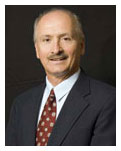 Mr Patrick Fazzone
Mr Patrick Fazzone
Patrick B. Fazzone is a Partner at Butzel Long Tighe Patton Attorneys and Counselors, in Washington DC. He specialises in sophisticated commercial transactions, corporate law, technology transfers and international trade law. His clients include U.S. and overseas private and quasi-governmental entities, including those in high technology industries. On the commercial side, he has rendered advice and assistance to clients in connection with major infrastructure projects around the world, including power projects, privatisations of rail systems and water treatment projects. He has also advised foreign and domestic companies on the protection of intellectual property rights, establishment and structuring of U.S. start-up companies, joint ventures and other commercial arrangements, in connection with business and asset acquisitions and dispositions, and the drafting of sales and technology agreements.
On the government relations front, Patrick provides ongoing advice on international trade issues and represents various overseas organisations, including those in the agricultural, energy, food processing and manufacturing sectors. Patrick has served as Vice Chairman for Trade and World Trade Organisation (WTO) issues for the Asia Pacific Council of American Chambers of Commerce. He is also chairman of the Trade and Government Committee of the American Chamber of Commerce in Australia.
He graduated from Duke University School of Law in 1981 where he was Note and Comment editor for the Law Journal. He has twice been a Fulbright Scholar -- first in International Trade Law in Geneva, Switzerland, and later in International Law in Sydney, Australia. He has taught both at Duke University School of Law and at the University of Sydney.
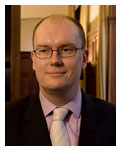 Dr Michael Fullilove
Dr Michael Fullilove
Michael Fullilove is the Director of the Global Issues Program at the Lowy Institute for International Policy and a Nonresident Senior Fellow in Foreign Policy at the Brookings Institution in Washington, DC.
Previously, Dr Fullilove worked as a lawyer, an adviser to Prime Minister Paul Keating, and a consultant to Frank Lowy AC on the establishment of the Lowy Institute. Michael graduated in international relations and law from the Universities of Sydney and New South Wales, with dual university medals. He also studied as a Rhodes Scholar at the University of Oxford, where he took a master's degree in international relations and wrote his doctorate on Franklin D. Roosevelt's foreign policy. His dissertation was awarded the annual prize for the best international history thesis in Britain.
Dr Fullilove has published more than one hundred articles in publications including The New York Times, the Financial Times, The Washington Post, the International Herald Tribune, Slate, The Daily Beast, the Los Angeles Times, The Christian Science Monitor, The Sydney Morning Herald, The Age, The Australian, the Australian Financial Review, The National Interest and Foreign Affairs. Michael has been quoted in publications such as the Yomiuri Shimbun, the South China Morning Post, The Observer, The Wall Street Journal, Time Magazine, Newsweek and The Economist, and he is a frequent commentator for the Australian Broadcasting Corporation. Dr Fullilove's first book, 'Men and Women of Australia!' Our Greatest Modern Speeches, was recently published by Vintage.
Dr Fullilove has recently returned to Sydney from Washington, DC, where he spent a year as a Visiting Fellow in Foreign Policy at the Brookings Institution.
Mr Peter Gallagher
Peter Gallagher is a leading Australian trade and public policy analyst. He has extensive experience in trade capacity building and trade and investment analysis.
He has led a number of quantitative and policy analysis projects for AUSAID, NZAID and DFID including designing and reporting on “Trade Capacity building for Non-State Actors in the Pacific” (2009) and reviewing the World Trade Organisation (WTO) technical assistance for Vietnam’s national action plan on economic integration/ poverty reduction in 2008.
Peter consults to the International Trade Center in Geneva, National Peak Industry Groups and major Australian and Multinational Firms on legal and economic aspects and trade remedies of global and bilateral trade agreements.
Since 2001 he has developed, coordinated and delivered seminars and workshops on technical, political and commercial aspects of trade negotiations, especially regional agreements (in conjunction with Australian Department of Foreign Affairs and Trade) for the Asia Pacific Economic Cooperation (APEC).
He has developed curricula and “teaching kits” on international trade for students for the WTO and taught Master of Business Administration elective courses at the Graduate Business School at the University of Melbourne.
Between 1992 and 1995, Peter managed the Australian Dairy Industry Council, implementing industry structural changes, including sun-setting of national support legislations and organisation structures.
Peter started his career with the Australian Department of Foreign Affairs and Trade, specialising in trade negotiations and working in numerous senior positions throughout the world.
He has published numerous books on legal & economic aspects of international trade.
 Dr Geoffrey Garrett
Dr Geoffrey Garrett
Geoffrey Garrett is founding CEO of the United States Studies Centre and Professor of Political Science at the University of Sydney. He was previously President of the Pacific Council on International Policy in Los Angeles and before that Dean of the UCLA International Institute.
Geoffrey is a frequent commentator on all aspects of US politics, economics and foreign policy in Australian media, including The Australian, The Australian Financial Review, The Sydney Morning Herald, and ABC radio and television programs.
Among the most influential political scientists of his generation, Geoffrey is author of Partisan Politics in the Global Economy, editor of The Global Diffusion of Markets and Democracy, both published by Cambridge University Press, and over fifty articles in the world's leading social science journals.
Geoffrey has held academic appointments at Oxford, Stanford and Yale universities and the Wharton School of the University of Pennsylvania. He is a member of the New York-based Council on Foreign Relations as well as the Los Angeles-based Pacific Council on International Policy.
A dual citizen of Australia and the US, Geoffrey was born and raised in Canberra and holds a BA (Hons) from the Australian National University. He earned his MA and PhD at Duke University in North Carolina, where he was a Fulbright Scholar.
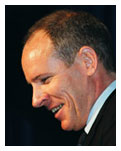 Professor Jock Given
Professor Jock Given
Jock Given is Professor of Media and Communications at Swinburne University’s Institute for Social Research. He was previously Director of the Communications Law Centre, Policy Advisor at the Australian Film Commission and Director, Broadcasting Legislation and Industry Economics, Department of Transport and Communications.
His books America’s Pie: Trade and Culture after 9/11 and Turning off the Television: Broadcasting’s Uncertain Future were published by UNSW Press in 2003.
He worked on the Closer Economic Relations Agreement between Australia and New Zealand, the WTO General Agreement on Trade in Services and AUSFTA.
His doctoral thesis about the early wireless entrepreneur Ernest Fisk (managing director of AWA in Sydney from 1917-44 and of EMI in London from 1945-51) was accepted by the University of Melbourne in 2007. In 2003/04, he received the C.H. Currey Memorial Fellowship at the State Library of NSW for this project.
Professor Given recently published articles in Info: The Journal of Policy, Regulation and Strategy for Telecommunications, Information and Media, the Historical Journal of Film, Radio and Television and the Australian Literary Review. He edited the November 2008 issue of Media International Australia, ‘Making Media Policy: Looking Forward, Looking Back’ and is associate editor of the new International Journal of Digital Television, being published by Intellect in Bristol.
 Dr Nicholas Gruen
Dr Nicholas Gruen
Nicholas Gruen is trained in History, Statistics, Law and Economics and has published internationally on a range of economic policy issues including intellectual property, economic liberalisation, and fiscal policy architecture.
He served as an advisor to Industry Minister, Senator John Button and Treasurer, John Dawkins. He was appointed to the Productivity Commission in 1994 and again in 1995 before he joined the Business Council of Australia in 1997 and ran their New Directions program. In 2000, he founded and remains CEO of Lateral Economics and Peaches, a discount finance broker.
Dr Gruen is chairman of www.onlineopinion.com.au, a popular Brisbane based internet site of political and cultural opinion and is a board member of the Government Authority Sustainability Victoria.
He is a fortnightly columnist for the Australian Financial Review and a substantial contributor to Australia’s thriving policy blog scene at www.clubtroppo.com.au.
Dr Gruen was a member of the Panel reviewing Australia’s Innovation System chaired by Terry Cutler. His company Lateral Economics was nominated by Lindsay Tanner to assist him and his Department on a range of matters relating to regulation including the concept of continuous improvement in regulation. In 2009 Lateral Economics has been working with the Australian Government Information Management Office on its online engagement strategy and with the State Services Authority in Victoria.
Mr Michael Handler
Michael Handler is a Senior Lecturer in the Faculty of Law at the University of New South Wales. He was previously the RIRDC Research Fellow at the Australian Centre for Intellectual Property in Agriculture at the Australian National University, where he remains an Adjunct Research Fellow, and has also worked at the University of Sydney and in legal practice.
Michael’s primary field of research is in intellectual property law, with a particular focus on the domestic and international protection of trade marks and geographical indications. He has published widely on these topics in Australian and international journals such as the Modern Law Review, the Federal Law Review, Transnational Law and Contemporary Problems, the Intellectual Property Quarterly and the European Intellectual Property Review, and has been invited to speak on his research at conferences and seminars in Australia, the UK and China. He has most recently co-authored a chapter on intellectual property aspects of preferential trade agreements, focusing on geographical indications and patents, with Professor Bryan Mercurio of the Chinese University of Hong Kong (in Lester and Mercurio (eds), Bilateral and Regional Trade Agreements: Commentary and Analysis (Cambridge University Press, 2009). He is currently writing a book on Australian trade mark law with Associate Professor Robert Burrell of the University of Queensland, due for publication in 2010.
Michael has obtained a number of research grants over his career and is currently a chief investigator on the ARC Discovery Project DP0985948, Entertainment rights in the age of the franchise: a reappraisal of personality rights under Australian intellectual property laws (2009-11).
At UNSW, Michael teaches the undergraduate course on intellectual property and postgraduate courses on international and comparative intellectual property and, from 2010, comparative trade mark law. He is the director of the LLM specialisation in Innovation Law and the program director of the Faculty’s new Graduate Diploma of Applied Intellectual Property.
Mr Richard Harris
Richard Harris was appointed Chief Executive Officer of the South Australian Film Corporation in July 2007. At the time of his appointment Richard was named by film industry magazine, Variety, as one of twenty film executives to watch.
Since his appointment, Richard has been instrumental in developing and implementing a number of new innovative industry initiatives including:
- Implementation of the first Australian state screen agency to cash-flow the producer offset;
- Innovation of the groundbreaking Producer Equity Scheme which forgoes the South Australian Film Corporation’s recoupment in favour of the producer. The South Australian Film Corporation is the only screen agency in Australia to introduce this scheme;
- Introduction on the Rights Reversion policy that that transfers copyright to the producer(s) on all non-SAFC produced investments five years after a film’s delivery date; and
- Creation of a bold $4.2 million low budget filmmaking initiative called FilmLab that provides a platform for the next generation of South Australian filmmakers to develop and demonstrate their talent. Richard has attracted international experts to support the lab, including acclaimed director Philip Noyce as patron; and writer/director Rolf de Heer, writer/director Greg McLean, UK producer Mark Herbert and Stephen Cleary (Arista) as advisors and consultants.
Prior to his current role, Richard was the Executive Director of the Australian Directors Guild for nine years where he fulfilled numerous industry roles including acting as the Project Manager for the Australian Screen Council, the Convenor of Australia’s Coalition for Cultural Diversity, and where he ran the International Affiliation of English-Speaking Directors Guilds for its first two years of operation.
Previously Richard has worked as the Policy Manager at the Screen Producers Association of Australia (SPAA) as well as in various research and publishing capacities at the Australian Film Television and Radio School.
Richard has taught Media Policy at University of Sydney, is the author of the recently published book Film in the Age of Digital Distribution, and in 2007 convened the AFTRS Digital Distribution Seminar series held around the country. More recently Richard chaired the forum “The Challenge of Distribution” at the 2009 BigPond Adelaide Film Festival.
Dr Simon Hearn
Simon Hearn is Australian Centre for International Agricultural Research’s (ACIAR) Senior Adviser, responsible for coordinating activities and contributions to research and development partners. The position also oversees agency planning and is responsible for stakeholder relations, as well as management of the Agricultural Development Policy program.
Dr Hearn has a BSc (Hons) in Agriculture and Economics from Reading University and a PhD in Agricultural Economics from London University. He has worked in agricultural and mining policy development and economic analysis both nationally and internationally.
Dr Hearn has also held a number of senior research and senior government executive positions, including heading government and industry delegations negotiating trade and commodity matters in Europe, Asia, America and Africa. He was previously the Agricultural Minister in the Australian Mission to the European Union and has served on a number of boards and councils including the Energy Research and Development Corporation, the BHP Coal Research Council, the Australian Meat and Livestock Corporation, Wool International and the Australian Rural Leadership Foundation.
Dr Hearn has also worked as Chief-of-Staff for the former Minister for Employment, Education and Training, and was most recently the Managing Director of the Rural Industries Research and Development Corporation.
 Professor Justin Hughes
Professor Justin Hughes
Justin Hughes teaches intellectual property (IP) and international trade at Cardozo School of Law in New York. Formerly a policy expert in the U.S. Department of Commerce (USPTO), his areas of expertise include domestic and international copyright, trade and WTO issues relating to intellectual property, database protection, trademarks, geographical indications, and intellectual property in developing countries.
Educated at Oberlin and Harvard, Professor Hughes has practiced international arbitration in Paris and, as a Henry Luce Scholar, clerked for the Lord President of the Supreme Court of Malaysia. Professor Hughes has been a visiting professor at UCLA and DePaul.
In his spare time, Professor Hughes has been extensively involved in election monitoring and democracy development. He also serves at Chairman of the Thomson Foundation for Film and Television Heritage, based in Paris.
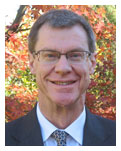 Mr Andrew McCredie
Mr Andrew McCredie
Andrew McCredie is the Executive Director of the Australian Services Roundtable (ASR), the peak business body for the services industries in Australia.
Prior to joining ASR, he had 25 years of innovation and economic policy experience in government (Department of Innovation and Industry, Prime Minister and Cabinet and Department of Foreign Affairs and Trade).
He managed the Action Agenda program designed to assist industries develop strategies for future growth, was influential in developing the Global Opportunities Program and the Industry Cooperative Innovation Program.
Andrew has represented Australia at the Organisation for Economic Co-operation and Development, World Bank and APEC meetings; was Industry and Science Counsellor in the Australian Embassy in Korea; and has been actively engaged in developing international industrial technology cooperation, especially in the Asian region.
Mr Charles McElhone
Charlie McElhone joined the National Farmers' Federation (NFF) as Manager – Economics in June 2006 and later took on the Trade portfolio in November 2008. Since joining the NFF, Charlie has taken the lead on issues including biofuels, taxation, competition policy, Manage Investment Schemes, trade reform, Cairns Group Farm Leaders and climate change mitigation. Through the climate change policy debate, Charlie coordinates the NFF’s Climate Change Working Group and has engaged extensively with industry and Government in the development of the Carbon Pollution Reduction Scheme (CPRS). He has had a leading hand in compiling the agricultural sector’s responses to both the Garnaut Review and the Government’s CPRS Green and White Papers.
His experience in agricultural economic analysis, lobbying and advocacy has included roles with the Australian Meat Council, InFARMation and Australian Pork Limited (APL).
Charlie holds Bachelor of Agricultural Economics Degree from the University of Sydney, a Graduate Diploma in International Business and a Master of Business Administration from Canberra University. Charlie is also a recipient of the United States International Visitor Leadership Program.
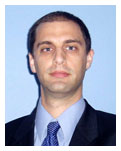 Professor Bryan Mercurio
Professor Bryan Mercurio
Bryan Mercurio is a Professor at the Chinese University of Hong Kong, Faculty of Law, where he specialises in international economic and trade law. He is widely published and a frequent commentator and speaker on a range of international trade law issues (including dispute settlement, the development and impact of free trade agreements, international intellectual property and public health).
His work is cited by academicians, governments and international organisations, such as the World Trade Organisation (WTO) Secretariat. Professor Mercurio has advised law firms, Non-Government Organisations and Members of both the Australian and New Zealand parliament on wide range of international trade law matters, including on pharmaceutical related aspects of the Australia-United States Free Trade Agreement (AUSFTA).
Professor Mercurio previously spent 5 years at the University of New South Wales, Faculty of Law, where he was the Director of the International Trade and Development Project at the Gilbert + Tobin Centre of Public Law. He has also held visiting positions at the Center for International and Comparative Law at St. Louis University School of Law, The George Washington University Law School, the Institute for International Economic Law at the Georgetown University Law Center and at the National University of Singapore.
Prior to entering academia, Professor Mecurio worked in both the public and private sector in Canada and the United States and practiced international commercial and international trade law in Australia. He is currently a Fellow of the Tim Fischer Centre for Global Trade & Finance, a founding member of the Asian International Economic Law Network, an Associate Member of the Asian WTO Research Network and on the Founding Committee and Executive Board of the Society of International Economic Law.
Dr Hazel Moir
Hazel Moir's academic background is in economics (Cambridge) and demography (Brown). She worked in the international development field before joining the Australian Public Service in 1979. Her public service career ranged through policy advice and development, policy oriented research (Bureau of Industry Economics and Bureau of Labour Market Research) and the delivery and improvement of corporate services. She worked in a number of different agencies, including the Department of the Prime Minister and Cabinet, the Australian Trade Commission and the industry department (under various names). She developed the initiative which led to the Business Longitudinal Survey, funded in the 1994/95 budget, and providing the first Australian panel data of economic significance.
Recently Dr Moir completed a second PhD, in public policy analysis. Her research focussed on the welfare impact of the patent system by actually measuring the height of the inventive step. Her submission on this issue to the National Innovation Review was cited in the Venturous Australia report. She has provided submissions on the economic impact of patent systems to related reviews and enquiries by ACIP, IP Australia and the Senate Community Affairs Committee, to whom she has also provided oral evidence. She is currently a Program Visitor at the Regulatory Institutions Network (ANU) where she is continuing her research on the economic impact of patent systems in high income countries.
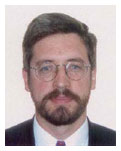 Mr Paul Morris
Mr Paul Morris
Paul Morris has been Executive Manager, Technical Market Access in the Department of Agriculture, Fisheries and Forestry since August 2006. In this position he is responsible for advancing Australia’s key technical market access issues for agriculture, fisheries, forestry and food.
Paul is involved in a number of Government-to-Government groups established under the Australia-United States Free Trade Agreement (AUSFTA). These include Co-Chair of the Sanitary and Phytosanitary Committee, Co-Chair of the Standing Technical Working Group on Sanitary and Phytosanitary Matters, and delegate to the Agriculture Committee.
He served as the Minister-Counsellor (Agriculture and Resources) at the Australian Embassy in Washington DC between 1996 and 1999. In this position he promoted Australia’s agricultural and resource policy interests in the United States, including through bilateral negotiations with key U.S. policy makers. During this period he also held the position of Chairman of the Standing Committee of the International Cotton Advisory Committee.
He has also held positions as Executive Manager, Innovation and Operating Environment in the Department, various senior positions the Australian Bureau of Agricultural and Resource Economics, as well as positions on the secretariats of the Royal Commission into Grain Storage, Handling and Transport; the Vines review into the wool industry; and the Garnaut review into the wool industry.
Paul has economics qualifications from the University of Melbourne and the Australian National University.
Dr Patricia Ranald
Patricia Ranald is a Research Associate at the University of Sydney.
She holds a Master’s Degree in Political Science from the University of Adelaide and a Master of Public Policy degree from the Graduate School of Business at the University of Sydney. Her Doctoral thesis in International Relations at the University of New South Wales (UNSW) was a comparative study of the World Trade Organisation and regional trade agreements, and won the UNSW Humanities Research Centre Award for best doctoral thesis of 2000.
She was formerly a Senior Research Fellow at the University of New South Wales, and currently teaches researchers in the Australian Council of Trade Unions education programme.
She has published widely on the social impacts of globalisation and trade agreements. Her publications on the Australia US Free Trade Agreement range from refereed journal articles and book chapters to submissions to parliamentary inquiries and popular publications. The most recent is “The Australia-US Free Trade Agreement” in Paul Bowles, Ray Broomhill, Teresina Gutiérrez-Haces and Stephen McBride (eds), Towards Reperipheralisation? International Trade and Neoliberal Globalism, London, Routledge, 2008
Her books include Trade Justice, published by the Australian Catholic Social Justice Council, 2005, and Stopping the Juggernaut: Public Interest versus the Multilateral Agreement on Investment, Pluto Press, 1999
Dr Ranald is co-convener of the Australian Fair Trade and Investment Network (AFTINET), a network of community organizations, including church groups, human rights groups, unions and environmental organizations. AFTINET advocates for fair trade policies based on human rights, labour rights and environmental sustainability.
Ms Cathy Raper
Cathy Raper is Assistant Secretary, Trade Commitments Branch in the Department of Foreign Affairs and Trade. Her responsibilities include legal and policy advice on existing free trade agreement (FTA) commitments (including under the Australia-United States FTA), the WTO’s interaction with regional trade agreements, trade and environment policy and negotiations and coordination of Australia’s FTA negotiations with the Gulf Cooperation Council (GCC) and the Trans-Pacific Partnership (TPP). She is lead Goods negotiator in the GCC FTA negotiations and will lead negotiations on Services and Investment in the TPP negotiations, and previously was legal counsel in Australia’s FTA negotiations with Chile. She has been involved with implementation of the Australia-United States FTA since April 2006.
Previously (January 2003-January 2006) Cathy Raper was Counsellor responsible for WTO dispute settlement and trade and environment at Australia’s Permanent Mission to the WTO in Geneva. She has also worked on international climate change negotiations and had a posting to The Hague.
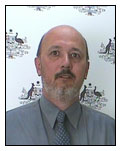 Mr Mike Rombouts
Mr Mike Rombouts
Mike Rombouts is is a leading Australian trade and public policy analyst in Government Procurement. He currently heads the Trade and Sectoral Policy Section of the Procurement Division in the Department of Finance and Deregulation. The Section is responsible for advising the Australian Government on international negotiations covering government procurement
He has directly participated in negotiations on Government Procurement as part of the development of Australia's Free Trade Agreements with Singapore, the United States and Chile. He is also a participant and advisor on government procurement matters for current Australian Free Trade Agreement negotiations, including with Japan, Korea and the Gulf Cooperation Council.
Mike has a background in Economics which led him, prior to joining the Procurement Division, into a number of appointments as a budget officer for the then Department of Finance and Administration. These appointments involved managing teams responsible for policy, expenditure and performance analysis across a wide range of government programs including areas such as mining, energy, Industry policy, customs, trade, export assistance, Aboriginal and Torres Strait Islander programs, fishery management, rural assistance and drought relief and Defence. This period also included a brief period working in East Timor as part of a team setting up a Ministry of Finance in the new independent government.
His career additionally includes work for the Australian Industry Commission (now the Productivity Commission) and the Australian Bureau of Statistics.
Dr Brendan Shaw
Brendan Shaw is Executive Director, Health Policy and Research, with Medicines Australia, the association that represents the Australian research-based pharmaceutical industry. His responsibilities have included policy development, economic analysis and government-business relations.
Dr Shaw manages the team within Medicines Australia responsible for health policy issues including Australian and international medicines policy, reimbursement and pricing policy, health technology assessment, Pharmaceutical Benefits Scheme, regulatory policy and Therapeutic Goods Administration, health policy, health outcomes, ageing population and economic and industrial trends in the pharmaceutical industry.
He is Co-Chair of Medicines Australia's Access Committee and for more than two years was the industry member of the Economic Sub‑Committee of the Australian Government's Pharmaceutical Benefits Advisory Committee. He is currently the innovative industry member of the Australian Government’s Pharmaceutical Benefits Pricing Authority.
 Associate Professor James Stellios
Associate Professor James Stellios
James Stellios is an Associate Professor at the ANU College of Law where he teaches constitutional law and international trade law. James joined the ANU College of Law in July 2001. Prior to that time, he spent a number of years in legal practice working for the Attorney-General’s Department and the Australian Government Solicitor. Immediately prior to joining the ANU College of Law, he worked as Counsel Assisting the Solicitor-General of the Commonwealth, and appeared as junior counsel for the Commonwealth in a number of constitutional cases before the High Court of Australia. He has also worked as a legal researcher at the High Court. James is also a Consultant to Clayton Utz.
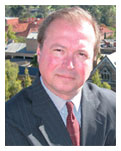 Mr Andrew Stoler
Mr Andrew Stoler
Andrew L. Stoler is the Executive Director of the Institute for International Trade and holds the title of Adjunct Professor of International Trade at the University of Adelaide. Andrew is a Governor of the American Chamber of Commerce in Australia and sits on the Advisory Board of the European Centre for International Political Economy, the Advisory Board of Stanford University’s GATT Digital Library, and is a member of the Advisory Committee of the Shanghai World Trade Organisation (WTO) Affairs Consultation Centre and a Senior Advisor to the Shenzhen WTO Affairs Centre. He is also a founding member of the International Academic Advisory Committee of the University of Sydney’s United States Studies Centre. In 2008, Andrew was a member of the Australian Trade Minister’s Free Trade Agreement (FTA) Reference Group and in 2005 - 2007 he served for two years on the Australian Foreign Minister’s Aid Advisory Council.
Andrew served as Deputy Director-General of the Geneva-based World Trade Organization (1999-2002) and as Deputy Permanent Representative of the United States to the GATT and WTO (1989-1999). Previously, as a senior official of the Office of the United States Trade Representative, Executive Office of the President (Washington, DC) he also served as Deputy Assistant U.S. Trade Representative for Europe and the Mediterranean and as Director for Canada, Australia and New Zealand.
Andrew holds an Masters of Business Administration in International Business from George Washington University and a Bachelor of Science (BSFS) in International Economic Affairs from Georgetown University’s School of Foreign Service. He is fluent in French and has a working command of Spanish.
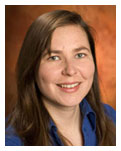 Dr Kyla Tienhaara
Dr Kyla Tienhaara
Kyla Tienhaara is a post doctoral fellow at the Regulatory Institutions Network (RegNet), Australian National University (ANU). Her research is focused on the public policy implications of investment agreements and investment arbitration. In particular, she has examined disputes between investors and states that have concerned environmental regulation. She is the year-in-review report contributor on developments in the field of investment law for the Yearbook of International Environmental Law and author of The Expropriation of Environmental Governance: Protecting Foreign Investors at the Expense of Public Policy to be released by Cambridge University Press later this year.
Prior to joining RegNet, she studied and worked at various universities around the world including the University of British Columbia in Canada, the University of Nottingham in the UK, and the Institute for Environmental Studies, Vrije Universiteit Amsterdam in The Netherlands. She has given seminars and guest lectures on international investment law at the University of Surrey, Erasmus University, Rotterdam, and ANU.
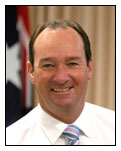 The Hon. Mark Vaile, Former Member for Lyne and former Deputy Prime Minister & Minister for Trade
The Hon. Mark Vaile, Former Member for Lyne and former Deputy Prime Minister & Minister for Trade
Mark Vaile was born in 1956 and grew up in the Manning Valley. The son of a pharmacist, Mark completed his HSC at Taree High School and further educated himself through the TAFE system. He has worked as a farm machinery salesman and also owned a successful Stock and Station and Real Estate Agency business in Taree. Keen to see regional Australia get its fair share of the nation’s prosperity, Mark ran for The Nationals in the electorate of Lyne and was elected to the Australian Parliament in March 1993.
Mark was Australia's Minister for Trade from July 1999 to September 2006 and was responsible for negotiating Australia's free trade agreements with the United States, Singapore and Thailand and led Australia's drive to free up global trade through the World Trade Organization. Mark has also held the ministerial portfolios of Transport and Regional Development (twice) and Agriculture, Fisheries and Forestry (1998-1999).
In June 2005 Mark was elected as Leader of The Nationals and became Deputy Prime Minister following the resignation of former leader John Anderson. Following the 2007 election Mark resigned as Leader of The Nationals. Mark retired from political life in July 2008 to pursue a career in the private sector.
Mr Innes Willox
Innes Willox is the Director of International and Government Relations for the Australian Industry Group, a large national employers' association. He took up this position in September 2008 and has a broad policy and advocacy responsibility across the federal and state government systems.
Previously, Innes has served as the Australian Consul General to Los Angeles from 2006 to 2008, representing wide-ranging Australian interests on the west coast of the United States, including the trade, finance, culture, entertainment, arts, environment and energy sectors. He was the west coast Chairman of the organising committee of the nationally publicised Australia Week promotion of Australian goods and services into the United States.
Innes served as the chief of staff to the Minister of Foreign Affairs 2004 to 2006. In this position he was the principal adviser to the Minister on all policy and political matters across the portfolio, as well as having direct policy responsibility for Australia's relations with the United States and international crime and terrorism issues. He sat in on the National Security Committee of Cabinet and was a member of the Federal Government's Foreign Affairs Council.
Earlier, Innes held a number of private sector and government positions including Senior Manager Public Affairs (International and Corporate) with Singapore Airlines based in Singapore (2000-04); senior adviser and media adviser to the Australian Minister for Foreign Affairs (1997-2000); federal political correspondent, The Age (1993-97); Chief of Staff, The Age (1991-93); Sections Editor, The Age (1991-1993), and Deputy News Editor, The Age (1987-1989).
Mr Willox was born in 1963 in Aberdeen, United Kingdom. He holds a BA (History and Politics) from Monash University and Graduate Certificates in Organisational Behaviour and Economics from the Edinburgh Business School. Innes is married and has three children.
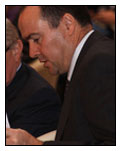 Mr Tim Yeend
Mr Tim Yeend
Tim Yeend is presently in the position of First Assistant Secretary, Office of Trade Negotiations (OTN), Department of Foreign Affairs and Trade (DFAT). In this position he has responsibility over a number of issues involving the WTO Doha negotiations, Australia’s participation in the WTO Dispute Settlement system and Australia’s free trade agreement agenda particularly the Gulf Cooperation Council FTA and the recently announced Trans-Pacific Partnership (Australia, Brunei, Chile, New Zealand, Peru, Singapore, USA, Vietnam) negotiation.
He was previously appointed Special Negotiator for Agriculture in the Australian Department of Foreign Affairs and Trade in January 2006. Prior to this he was serving as Deputy Head of Mission at Australia’s Mission in Geneva. Tim has also served as an adviser to former Deputy Prime Ministers and Ministers for Trade, Tim Fisher and Mark Vaile. He has also worked for DFAT at the Australian Embassies in Jakarta and Pretoria/Cape Town.
Symposium Organisers
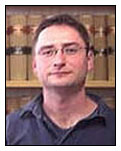 Dr Robert Burrell
Dr Robert Burrell
Robert Burrell is an Associate Professor in Law in the TC Beirne School of Law at the University of Queensland. Dr Burrell worked previously at the Australian National University and King's College London. He also works a trade marks attorney in the Brisbane offices of Trademark Central.
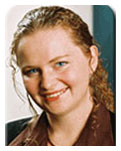 Ms Kimberlee Weatherall
Ms Kimberlee Weatherall
Kimberlee Weatherall is a Senior Lecturer in the School of Law and an Adjunct Research Fellow with the Australian Centre for Intellectual Property in Agriculture.
Kimberlee teaches and researches in intellectual property law, with a particular interest in digital copyright, the relationship between international trade and intellectual property, and the systems for administration and enforcement of intellectual property rights.
|
Day 1 (Monday 24 August 2009) |
||
|---|---|---|
| Registration (8.15 - 8.50am) | ||
| 8.50 - 9.30am |
Plenary Session: IntroductionWelcome: Associate Professor Robert Burrell, The University of Queensland Professor Paul Greenfield, Vice-Chancellor, The University of Queensland Mr Daniel Clune, Charge` d'Affaires, Embassy of the United States of America Ms Kimberlee Weatherall, The University of Queensland |
|
| 9.30 - 10.50am |
Plenary Session: The Origins of the AUSFTA: Background and ContextChair: Associate Professor Robert Burrell, The University of Queensland Speakers: The Hon. Mark Vaile, Member for Lyne and former Deputy Prime Minister & Minister for Trade Mr Stephen Deady, formally of DFAT, and negotiator of AUSFTA Panellist: Mr Mark Davis, Political Correspondent (Canberra), Sydney Morning Herald |
|
| Break (10.50 - 11.20am) | ||
| 11.20am - 12.40pm |
Plenary Session: Political Impact of the AUSFTA: Perceptions of the Agreement within Australia and the USChair: Professor Justin Hughes, Cardozo Law School, Yeshiva University Speakers: Dr Patricia Ranald, Research Associate, The University of Sydney Dr Nicolas Gruen, CEO, Lateral Economics Panellists: Professor I.M (Mac) Destler, School of Public Policy, The University of Maryland Dr Michael Fullilove, Lowy Institute and Brookings Institution |
|
| Lunch (12.40 - 1.40pm) | ||
| 1.40 - 3.00pm |
Plenary Session: Economic Impact of the AUSFTAChair: Mr Edgard Kagan, Economic Counselor, Embassy of the United States of America Speakers: Professor Andrew Stoler, The University of Adelaide Mr Lee Davis, Director, Centre for International Economics Panellist: Dr Hazel Moir, The Australian National University |
|
| Break (3.00 - 3.30pm) | ||
| 3.30 - 4.50pm |
Parallel Session 1A: Services and Public ProcurementChair: Mr Michael Handler, University of New South Wales Speakers: Mr Andrew McCredie, Executive Director, The Australian Services Roundtable (ASR) Mr Mike Rombouts, Department of Finance and Deregulation Panellists: Mr Patrick Fazzone, Butzel Long Tighe Patton Attorneys and Counselors Associate Professor James Stellios, The Australian National University |
Parallel Session 1B: Health Policy, Patents and PharmaceuticalsChair: Ms Cathy Raper, Assistant Secretary, Trade Commitments Branch, Department of Foreign Affairs and Trade Speakers: Professor Bryan Mercurio, The Chinese University of Hong Kong Associated Professor Tom Faunce, The Australian National University Panellists: Dr Ruth Lopert, Principal Medical Adviser, Therapeutic Good Administration Ms Kate Lynch, CEO, Generic Medicines Industry Association of Australia Dr Brendan Shaw, Executive Director, Health Policy and Research, Medicines Australia |
| Drinks (5.00 - 6.00pm) | ||
|
Day 2 (Tuesday 25 August 2009) |
||
|---|---|---|
| Arrival and Coffee (8.30-9.00am) | ||
| 9.00 - 10.20am |
Parallel Session 2A: Developments in Investment and Trade in Financial ServicesChair: Mr Steven Bardy, Senior Executive, International Strategy, Australian Securities and Investments Commission Speakers: Mr Patrick Fazzone, Butzel Long Tighe Patton Attorneys and Counselors Dr Kyla Tienhaara, The Australian National University Panellist: Mr Martin Codina, Senior Policy Manager for Global Markets, Investment Financial Services Association |
Parallel Session 2B: Intellectual PropertyChair: Ms Helen Daniels, Assistant Secretary, Copyright and Classification Branch, Attorney Generals Department Speakers: Professor Justin Hughes, Cardozo Law School, Yeshiva University Mr Michael Handler, The University of New South Wales Panellists: Professor Bryan Mercurio, The Chinese University of Hong Kong Ms Kimberlee Weatherall, The University of Queensland |
| Break (10.20 - 10.50am) | ||
| 10.50am - 12.10pm |
Parallel Session 3A: Specific Issues in Agriculture and QuarantineChair: Dr Simon Hearn, Australian Centre for International Agricultural Research Speakers: Mr Peter Gallagher, Trade and Policy Analyst, Inquit Mr Paul Morris, Executive Manager, Technical Market Access, Department of Agriculture, Fisheries and Forestry Mr David Adamson, The University of Queensland Panellists: Mr Tony Battagelene, General Manager, Strategy and International Affairs, Winemakers Federation of Australia Mr Chris McElhone, Manager, Economics and Trade, National Farmers' Association |
Parallel Session 3B: Culture and Local Content RulesChair: Dr Milton Churche, Free Trade Agreement (FTA) Unit, Department of Foreign Affairs and Trade Speakers: Professor Jock Given, Swinburne University Mr Richard Harris, Chief Executive Officer, South Australian Film Corporation
Panellist: Ms Catherine Griff, Manager of Strategy, Screen Australia
|
| Lunch (12.10 - 1.10pm) | ||
| 1.10 - 2.30pm |
Plenary Session: The AUSFTA, Bilateral and Regional Trade Policy in the Asia-PacificChair: Professor Kent Anderson, The Australian National University Speaker: Associate Professor Nick Bisley, La Trobe University Mr Tim Yeend, First Assistant Secretary, Officer of Trade Negotiations, Department of Foreign Affairs and Trade Panellist: Professor Brian Mercurio, Faculty of Law, The Chinese University of Hong Kong Professor Justin Hughes, Cardozo Law School, Yeshiva University
|
|
| Short Break (2.30 - 2.40pm) | ||
| 2.40 - 4.30pm |
Final Plenary Session: Where to now for Australian and US Trade Policy?Chair: Associate Professor Robert Burrell Speakers: Professor Geoffrey Garrett, Chief Executive Officer, US Studies Centre, The University of Sydney Professor I.M (Mac) Destler, School of Public Policy, The University of Maryland Dr Michael Fullilove, Lowy Institute and Brookings Institution Panellist: Mr Innes Willox, Director, Australian Industry Group |
|
| 4.30 - 4.45pm |
Concluding Remarks and Conference Close |
|
| Drinks hosted by the US Embassy (5.00 - 6.30pm) | ||
Old Parliament House opened in 1927 and served as the home of Federal Parliament until 1988. Today the building is a living museum of social and political history. It is located in a national listed heritage building on King George Terrace in Parkes, Canberra.
Old Parliament House is an approximate 10 to 15 minutes drive from the airport by taxi, hire car or shuttle bus.
- Free parking is available. Refer to Old Parliament House website for further details
- Facilities for the disabled and wheelchair access
- Accessible from Canberra’s Town Centre via ACTION bus routes 2, 3 (nearby King Edward Terrace) and 6 (front of building) on weekdays and route 934 (King Edward Terrace) on weekends and public holidays
Further information about the venue is available from the Old Parliment House website.
The TC Beirne School of Law is one of Australia’s oldest and most prestigious law schools. The School is dedicated to excellence in the creation and dissemination of legal knowledge, the education of outstanding, socially responsible lawyers who will serve as leaders in their fields, and the improvement of the law and legal institutions through research, teaching and engagement with our national and international communities.
The School is a member of the Group of Eight, an organisation representing Australia’s leading research-intensive universities. We comprise a diverse, energetic community of scholars engaging in leading edge research across a wide range of legal fields. Our work aims to make significant and lasting contributions to the understanding and development of law both nationally and internationally, adding both to the effectiveness of law as a discipline and to a better understanding of its relationship with other disciplines such as science, philosophy, economics, sociology, politics, business and social policy.
Within the School there are a number of current and emerging research areas of strength and specialisation. Some of these areas of strength have been rationalised into formal research centres or informal research networks, which engage in collaborative, inter-institutional or inter-disciplinary projects. Many projects are done in association with industry and/or governmental stakeholders both within Australia and abroad.
